Books
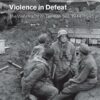
Violence in Defeat: The Wehrmacht on German Soil, 1944–1945
By Bastiaan Willems. In the final year of the Second World War, as bitter defensive fighting moved to German soil, a wave of intra-ethnic violence engulfed the country. Bastiaan Willems offers the first study into the impact and behaviour of the Wehrmacht on its own territory, focusing on the German units fighting in East Prussia…
Read more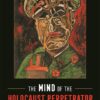
The Mind of the Holocaust Perpetrator in Fiction and Nonfiction
By Erin McGlothlin. The Mind of the Holocaust Perpetrator in Fiction and Nonfiction examines texts that portray the inner experience of Holocaust perpetrators and thus transform them from archetypes of evil into complex psychological and moral subjects. Employing relevant methodological tools of narrative theory, Erin McGlothlin analyzes these unsettling depictions, which manifest a certain tension…
Read more
The Forgotten Massacre: Budapest in 1944
By Andrea Petö. The book discusses a formerly unknown and invisible massacre in Budapest in 1944, committed by a paramilitary group lead by a women. Andrea Petö uncovers the gripping history of the fi rst private Holocaust memorial erected in Budapest in 1945. Based on court trials, interviews with survivors, perpetrators, and investigators, the book…
Read more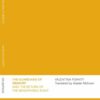
The Guardians of Memory and the Return of the Xenophobic Right
By Valentina Pisanty. In the concise chapters of this extended essay, Pisanty tracks the weaknesses of the dominant memory culture across a series of domains of public culture. She takes aim at the sacralization and fetishization of witness testimony, the rigid structures of collective memory, the banality of “Holocaust tourism,” the stereotypical formats of popular…
Read more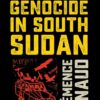
War and Genocide in South Sudan
By Clémence Pinaud. Using more than a decade’s worth of fieldwork in South Sudan, Clémence Pinaud here explores the relationship between predatory wealth accumulation, state formation, and a form of racism―extreme ethnic group entitlement―that has the potential to result in genocide. War and Genocide in South Sudan traces the rise of a predatory state during civil war in…
Read more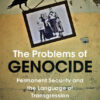
The Problems of Genocide: Permanent Security and the Language of Transgression
By A. Dirk Moses. Genocide is not only a problem of mass death, but also of how, as a relatively new idea and law, it organizes and distorts thinking about civilian destruction. Taking the normative perspective of civilian immunity from military attack, A. Dirk Moses argues that the implicit hierarchy of international criminal law, atop…
Read more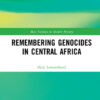
Remembering Genocides in Central Africa
By Rene Lemarchand. Scene of one of the biggest genocides of the last century Rwanda has become a household word, yet bitter disagreements persist as to its causes and consequences. Through a blend of personal memories and historical analysis, and informed by a lifelong experience of research in Central Africa, the author challenges conventional wisdom…
Read more
Early Holocaust Memory in Sweden: Archives, Testimonies and Reflections
Edited by Johannes Heuman and Pontus Rudberg. This book investigates the memory of the Holocaust in Sweden and concentrates on early initiatives to document and disseminate information about the genocide during the late 1940s until the early 1960s. As the first collection of testimonies and efforts to acknowledge the Holocaust contributed to historical research, judicial…
Read more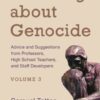
Teaching about Genocide
Advice and Suggestions from Professors, High School Teachers, and Staff Developers. (Volume 3) Edited by Samuel Totten. Teaching about Genocide presents the insights, advice, and suggestions of secondary-level teachers and professors, in relation to teaching about various facets of genocide. The contributions range from basic concerns when teaching about genocide to a discussion about why…
Read more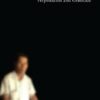
The Complexity of Evil: Perpetration and Genocide
By Timothy Williams. Why do people participate in genocide? The Complexity of Evil responds to this fundamental question by drawing on political science, sociology, criminology, anthropology, social psychology, and history to develop a model which can explain perpetration across various different cases. Focusing in particular on the Holocaust, the 1994 genocide against the Tutsi in…
Read more
